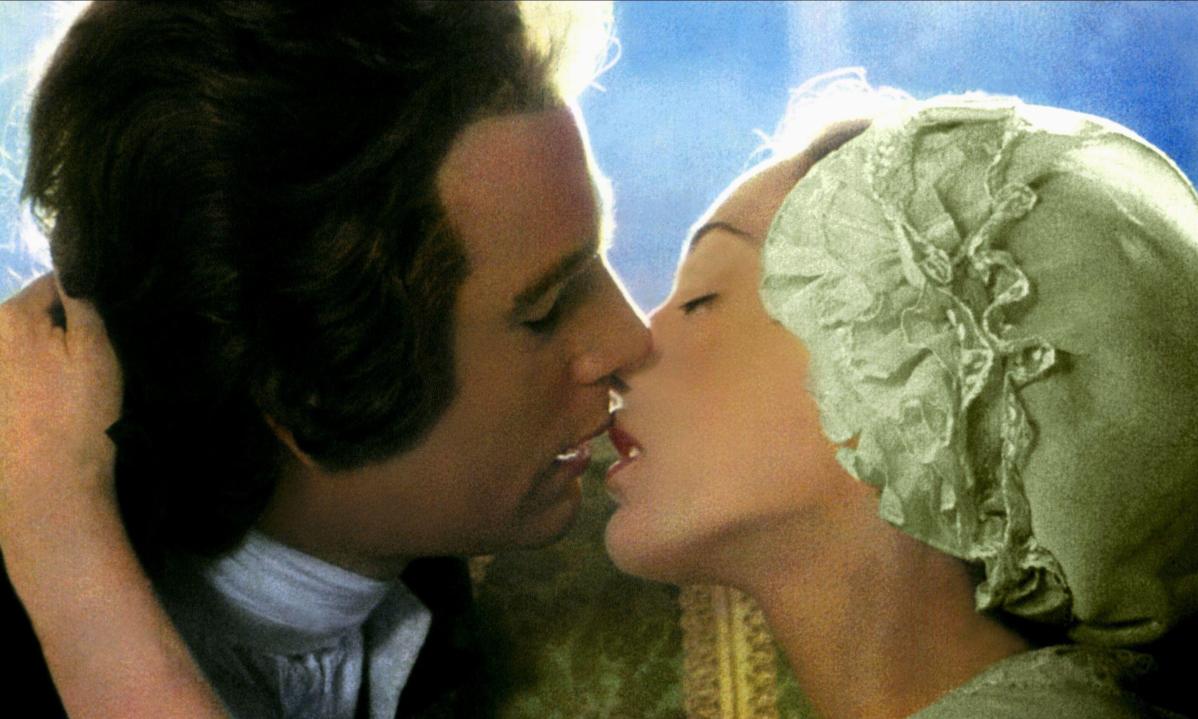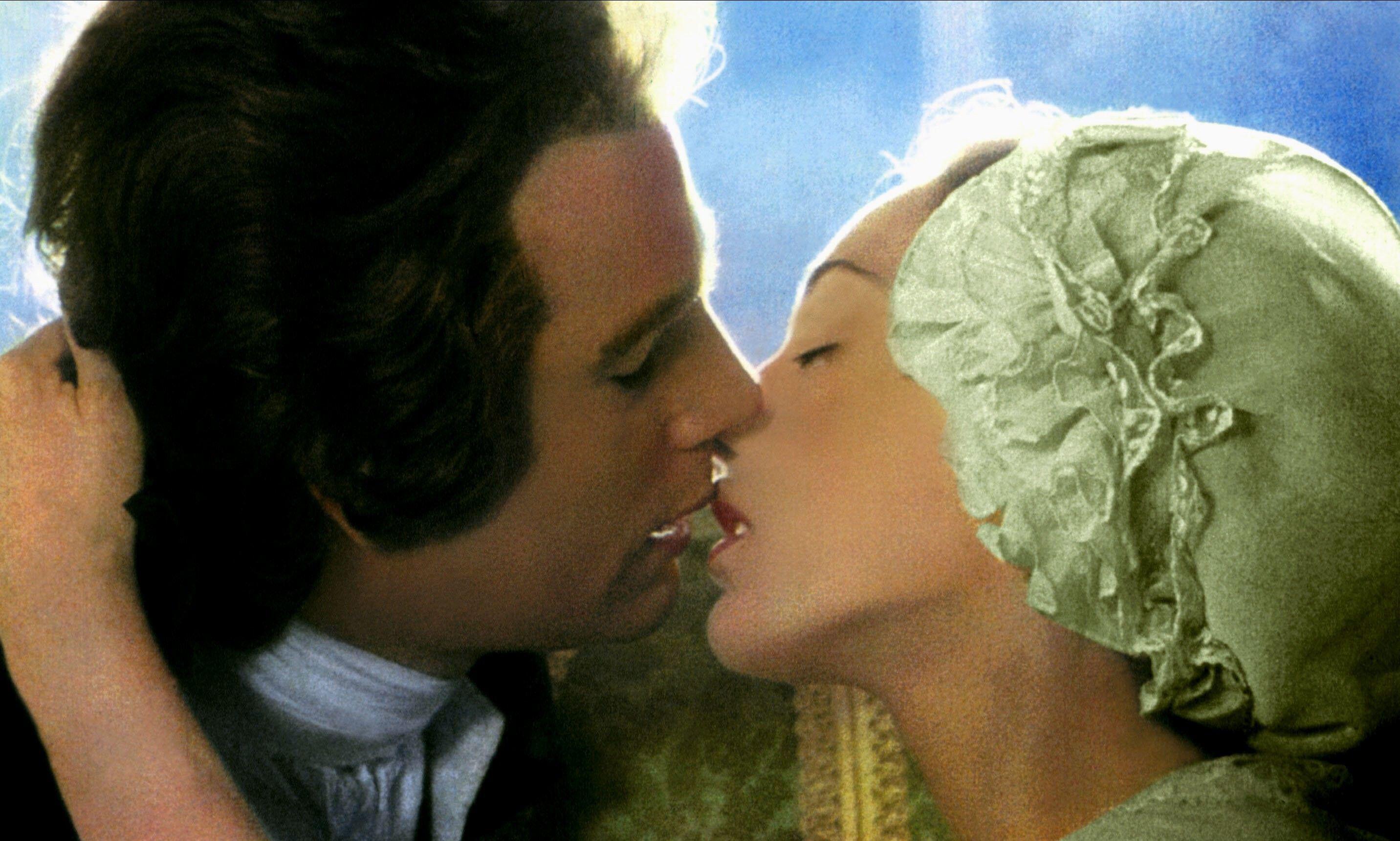Stanley Kubrick’s swooningly gorgeous film, Barry Lyndon, has just been re-released in cinemas to mark its 50th anniversary. Much ink has been spilled about its hypnotic beauty, its lavish attention to historical detail, its dreamy, luscious, candlelit photography. Yet William Thackeray’s bitingly satirical novel of the same name is often neglected – as is the true, harrowing story that inspired it.
The book Barry Lyndon (first published in 1844) bore its genesis from the story of a real adventurer, Andrew Robinson Bowes, whose cruelty to his wife, the Countess of Strathmore, was notorious. Born Andrew Robinson Stoney, he rose to the rank of a lieutenant before marrying an heiress; after her death, he met the beautiful, rich Mary Bowes in a gambling house (her husband, the Earl of Strathmore, had recently died). He married her and took her name, becoming Andrew Robinson Bowes, and promptly squandered his wife’s fortune, while being increasingly vicious towards her.
Mary managed to escape from him twice. The first time, Bowes found and abducted her, and imprisoned her on their estate. The second time, she got him arrested, and he ended his days in prison. It’s not hard to see the attraction of this as a plot for Thackeray. He knew what it was to be in debt for gambling, having left Cambridge without a degree because of it. He knew tragedy, too: one of his daughters died when she was a baby, and his wife was committed to an asylum.
The similarities with Redmond Barry, the narrator of Thackeray’s Barry Lyndon, are vivid. Barry follows almost exactly the same path, from impoverished Irishman as the son of a disgraced lawyer, through the military, marriage to an aristocrat, ruin and imprisonment.
The novel is presented as Barry’s memoirs, and he never once shows a modicum of remorse. A slippery character, he often changes names, taking on other, grander personae: Barry of Barryogue, Barry of Ballybarry, and eventually Barry Lyndon. In the novel, Barry’s selfishness and egotism drive him onwards relentlessly in pursuit of gain. Where Kubrick makes us feel for the handsome young Redmond Barry, Thackeray gives us little to admire in this headstrong, hotheaded egotist.
His picaresque career is marked by betrayal and intrigue. Following a duel in which he almost kills an English officer, he joins the army, where he distinguishes himself in the Seven Years’ War with acts of senseless brutality, including killing a young ensign and robbing the boy’s corpse without qualm. Later, when he is asked by the Prussians to spy on the Chevalier de Balibari (a famous gambler), who turns out to be his uncle, Barry becomes a double agent. Together, uncle and nephew cheat their way through the royal courts of Europe.
Where Thackeray makes no bones about the pair’s duplicity and dishonour, Kubrick invites us even to admire them, suggesting that they’re simply taking money from those who have too much of it. When, in the novel, Barry claims he’s no different to a lawyer or a merchant, we marvel at his disingenuousness; Kubrick’s glorious portrayal of the aristocratic gambling dens and their foppish denizens forces us to question this.
Where Stanley Kubrick makes us feel for the handsome young Redmond Barry, William Thackeray gives us little to admire in this headstrong, hotheaded egotist
Dazzled by the trappings of wealth, Barry decides to marry a rich woman, and settles on the fabulously rich Lady Lyndon, whose husband, Sir Charles, is on his deathbed. Barry’s pursuit of his prize is, in the book, markedly sinister. He becomes a figure of almost supernatural, Gothic power, wishing to bend her entirely to his will. All he wants, of course, is her money, and on their marriage the Irish upstart Redmond Barry becomes what he always wished for: the aristocratic Barry Lyndon, with vast estates and a vaster fortune at his beck and call.
From here, the film takes a markedly different turn to the book. Thackeray shows Barry’s dissipation in detail. He is a monster, openly having affairs and abusing and imprisoning the foolish, capricious Lady Lyndon. Meanwhile, her son by Sir Charles, Viscount Bullingdon (known as ‘Bully’), vanishes off to America, abandoning her almost entirely. (Kubrick makes much more of this relationship, with the Viscount as an active agent of revenge.)
Kubrick, on the other hand, shows Barry cutting a fine dash in society. Every time I watch the film I find myself, during this part, sinking blissfully into its sumptuousness. Ryan O’Neal (playing Barry), and Marisa Berenson (Lady Lyndon) are so attractive to watch that the viewer can’t help sympathising with both of them. Barry floats around in gorgeous clothes, buys fabulous paintings, gambles and drinks. When he has a son, Bryan, with Lady Lyndon, he indulges him extravagantly, giving him a little coach drawn by sheep.
In the novel, when Bryan dies by falling off a horse given to him by his father, Thackeray destroys any sympathy we might have. Immediately, Barry tries to pass off his illegitimate offspring as legitimate, desperate for a title that he can pass down to a son. Kubrick only hints at this appalling treatment of his wife: she’s shown as a bored, virtuous bluestocking. Viscount Bullingdon is also rendered by Kubrick a much more ambivalent character. The final, engrossingly tense duel between him and Barry invites us to consider that, in the end, there isn’t much between Bully and Ballybarry. They are two sides of the same golden coin.
And yet this does a major disservice to the novel’s intent. By downplaying Barry’s violence and utter wrongness, Kubrick creates a fantasy. I’m not alone in wanting to live in the world that he built: the velvet coats, the glittering jewels. It’s very much worth remembering that behind this luscious, seductive film lies real suffering: an imprisoned woman, and a monstrous man who tried to control her.








Comments